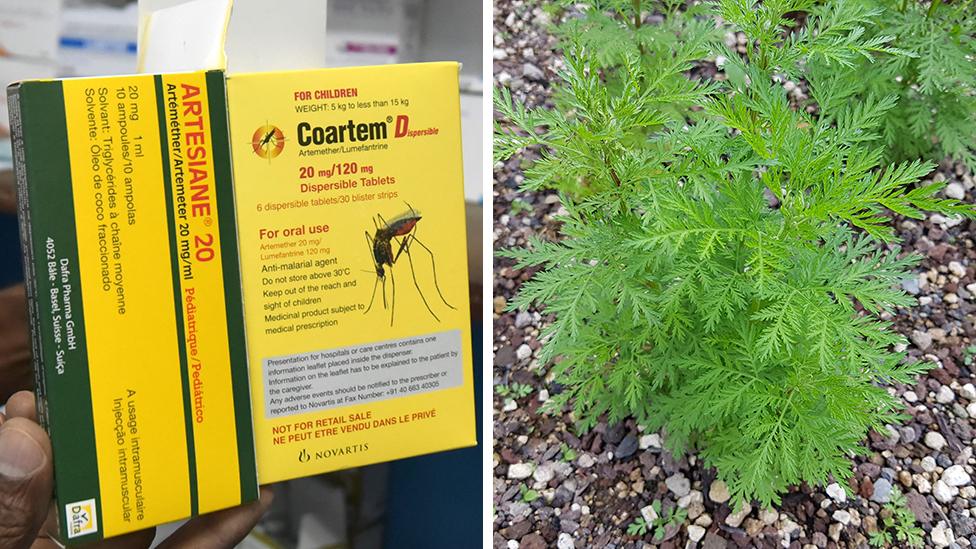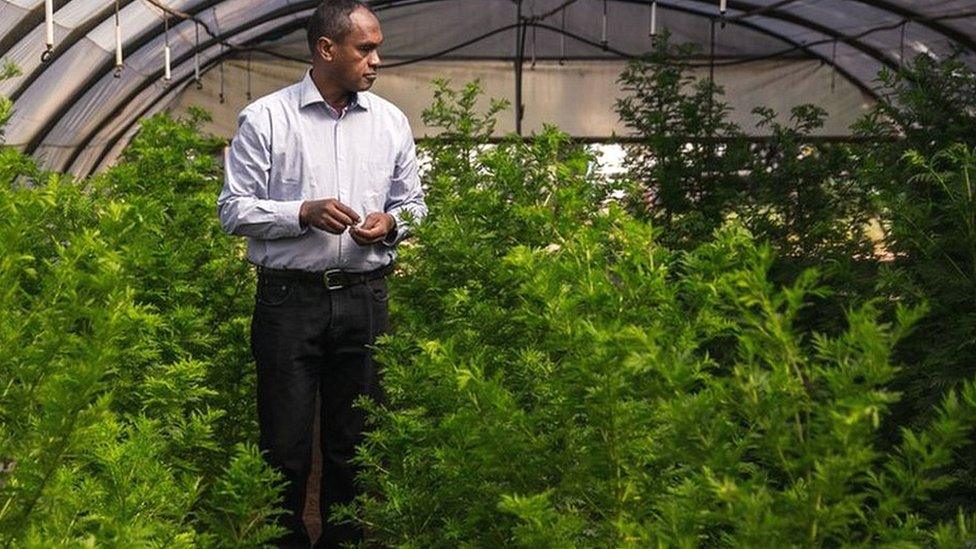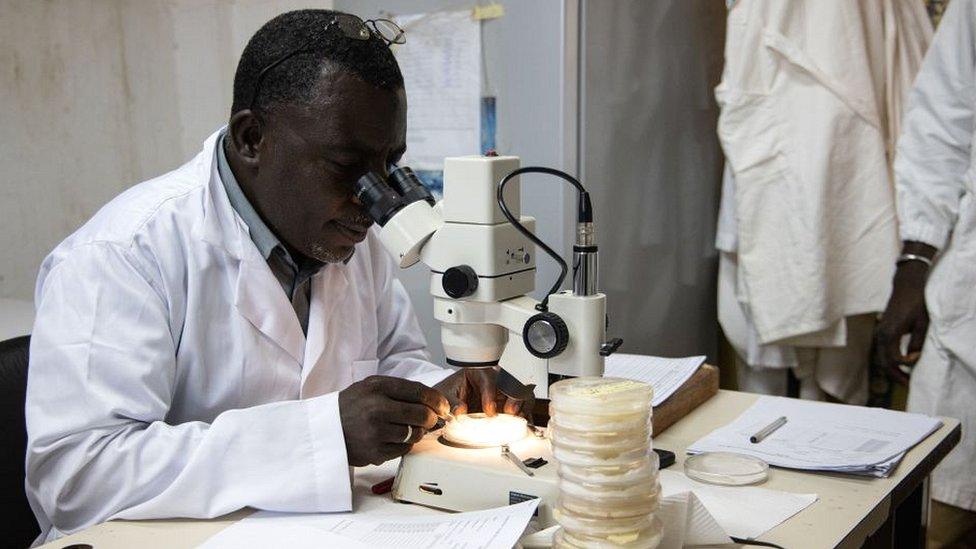Coronavirus: What do we know about the artemisia plant?
- Published

The artemisia annua plant, also known as sweet wormwood, has long provided a key ingredient in treating malaria
The World Health Organization (WHO) is to test a malaria drug on Covid patients, which is derived from the artemisia plant used in Madagascar.
The African island nation attracted a lot of attention last year when it announced it was promoting a drink containing artemisia plant extracts to combat coronavirus.
There's no evidence so far that this plant can combat Covid-19.
What is the WHO saying about artemisia?
Artesunate is one of three new drugs to be tested on hospitalised Covid patients., external
It's a derivative of artemisinin found in the artemisia plant, used for decades to treat malaria.
The drug will be part of an on-going trial involving researchers in hospitals around the world, looking at treatments for the most seriously ill Covid patients.
Four other drugs that were part of an earlier phase of this trial were found to have little or no effect on hospitalised patients.
The WHO says there is currently no evidence that artemisia-derived products are effective in treating Covid-19.
The global health body has also helped Madagascar with its own trial of a drug using artemisia and other plant extracts, but says the data needs to be scientifically assessed before any conclusions can be drawn.
Where does the plant come from?
Artemisia annua is originally from Asia, but grows in many other parts of the world with sunny and warm conditions.
It's been used in Chinese traditional medicine for more than 2,000 years for treating a number of diseases, including malaria, as well as to relieve pain and combat fever.

Artemisia plants being grown in Madagascar
In Chinese medicine, it is known as "qinghao."
It is also called sweet wormwood or annual wormwood, and is used as an alternative therapy - and even put into some alcoholic drinks.
President Rajoelina of Madagascar said last year that trials conducted on the Covid-Organics drink - which uses artemisia - showed its effectiveness against the disease.
But the exact composition of the drink is not known, although the government says more than 60% is derived from the artemisia plant.
Mr Rajoelina says among the additional plants is ravintsara, an indigenous plant of the laurel family.
Madagascar also started producing capsules and a solution that can be injected, on which clinical trials were started.

President Rajoelina promoted the drink to combat coronavirus in Madagascar
German and Danish scientists have been testing extracts from artemisia annua plants, which they said showed some effectiveness against the new coronavirus in a laboratory setting.
The research - which hasn't been independently reviewed by other scientists - found that these extracts showed anti-viral activity when used with pure ethanol or distilled water.
These researchers are working with the University of Kentucky and were conducting human clinical trials in Mexico.
China has been conducting its own tests, based on traditional medicines that use the artemisia annua plant.
And scientists in South Africa have been doing laboratory tests on artemisia annua and another variety of the plant - artemisia afra - for effectiveness against Covid-19.
How is it used against malaria?
The active ingredient found in the dried leaves of artemisia annua is called artemisinin, and it does work against malaria.
Chinese scientists pioneered the discovery of its properties when they were searching for a cure for malaria in the 1970s.
Chinese scientists on the search for a malaria cure
Artemisinin-based combination therapies - known for short as ACTs - are recommended by the WHO against malaria, especially those types now resistant to chloroquine, which is one of the main drug treatments for the disease.
ACTs contain derivatives of artemisinin combined with other substances, and these reduce the number of malaria parasites in the body.
Increased access to ACTs in malaria-endemic countries has been cited as a key factor in helping reduce the global toll of the disease in the last 15 years.
What are the risks of drug resistance?
Because artemisia annua extracts have started appearing more widely as remedies for malaria, such as in tea, there's concern that unregulated usage could allow the malaria parasite to develop resistance.

The malaria parasite is showing increasing resistance to some drugs
There are a number of countries in south-east Asia where this resistance has already been observed.
"We know that over time the [malaria] parasite will start to resist, but this time [period] needs to be as long as possible," says Jean-Baptiste Nikiema of the WHO.
The WHO now discourages the use of non-pharmaceutical forms of artemisinin, concerned that it could lead to growing malarial resistance.

GLOBAL SPREAD: Tracking the coronavirus pandemic
GLOBAL TRENDS: Where are cases rising and falling?
TRACKER: Coronavirus cases in Africa

